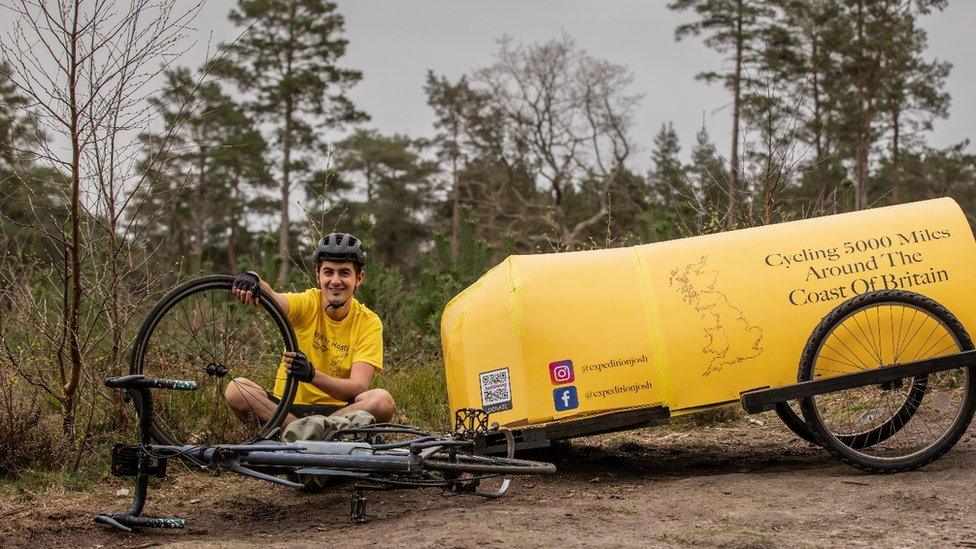Major walking 1,200 miles barefoot to fund daughter's treatment
- Published
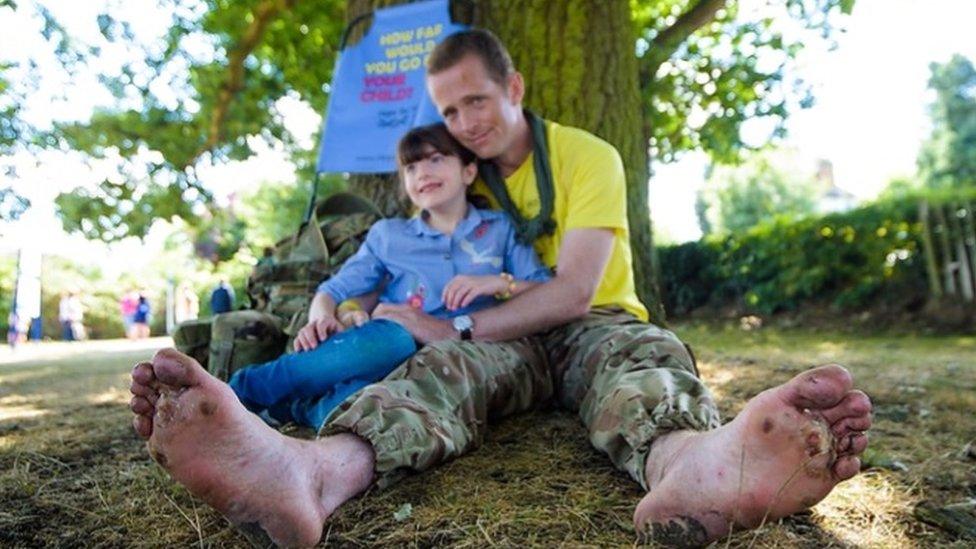
The army major who is based at Tidworth barracks in Wiltshire will be walking 1,200 miles barefoot across the east coast of America in aid of his daughter Hasti that has CdLS, a potential life-limiting and life-shortening condition
An army major is walking barefoot along the east coast of the USA to fund the creation of treatment for his daughter's rare genetic disease.
Maj Chris Brannigan's nine-year-old daughter Hasti was diagnosed with Cornelia de Lange Syndrome (CdLS) in 2019.
Children with CdLS often suffer from seizures and severe anxiety.
He undertook a similar challenge last year, walking 700 miles barefoot from Land's End to Edinburgh.
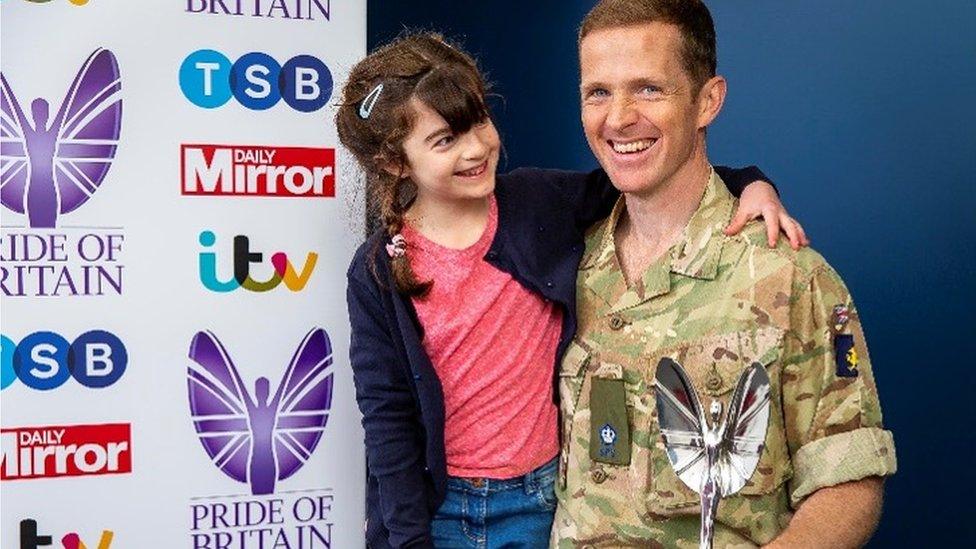
Major Chris Brannigan won the ITV National Pride of Britain fundraiser award in 2020
The officer, who is based at Tidworth barracks in Wiltshire, raised £500,000 on his Hope for Hasti campaign last summer, with the money going to fund pioneering research at The Jackson Laboratory in Maine, US.
"The research and treatment for Hasti and for children with CdLS is going really well. We know the treatment is safe and we're currently testing it to understand how effective it is," he said.
"We are really hopeful that we'll have a gene therapy that's ready by early next year," Maj Brannigan added.
"But the problem is, clinical trials and to actually be able to give it to children costs millions and millions of pounds and we just don't have that sort of money."
"So we're fundraising the only way we know how."
He said the fundraising target had always been £2.5m, and £900,000 had been raised so far.
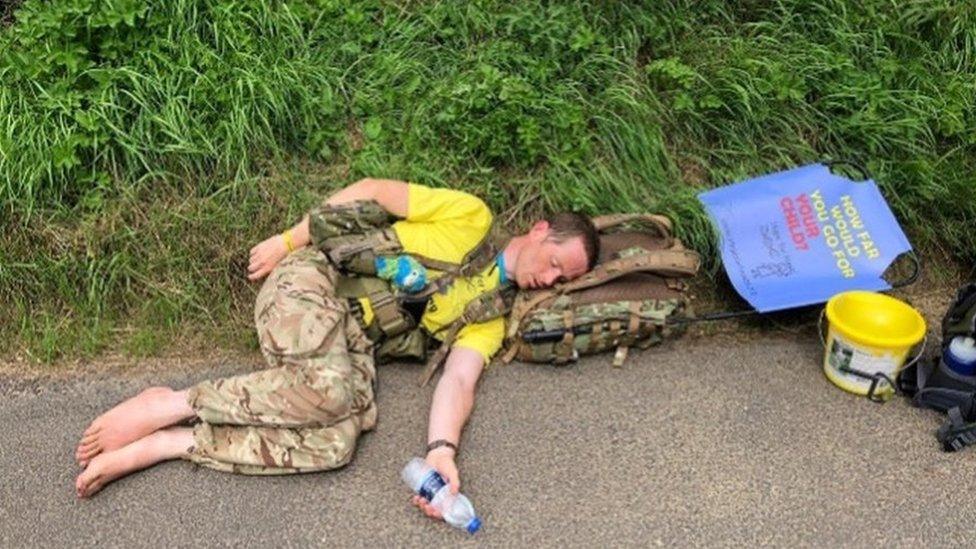
The major said he had spent time away from his family for long periods in the past but this "will be different"
Maj Brannigan started his non-stop, 1,200-mile, barefoot walk across the east coast of America on Tuesday from The Jackson Lab in Maine, heading south towards his finish line in Florida.
"I can think of nothing worse than having to walk barefoot again, when I finished last year I promised myself I would never do it again," he said.
"I'm going to be carrying about 25kgs of kit on my back and I'll be walking 500 miles further - so it can only be worse.
"I'm also walking in a country where I don't know anyone. I'm worried about walking the route alone.
"My two boys have been helping me pack my kit. Hasti has given me one of her teddies for me to carry the whole way."
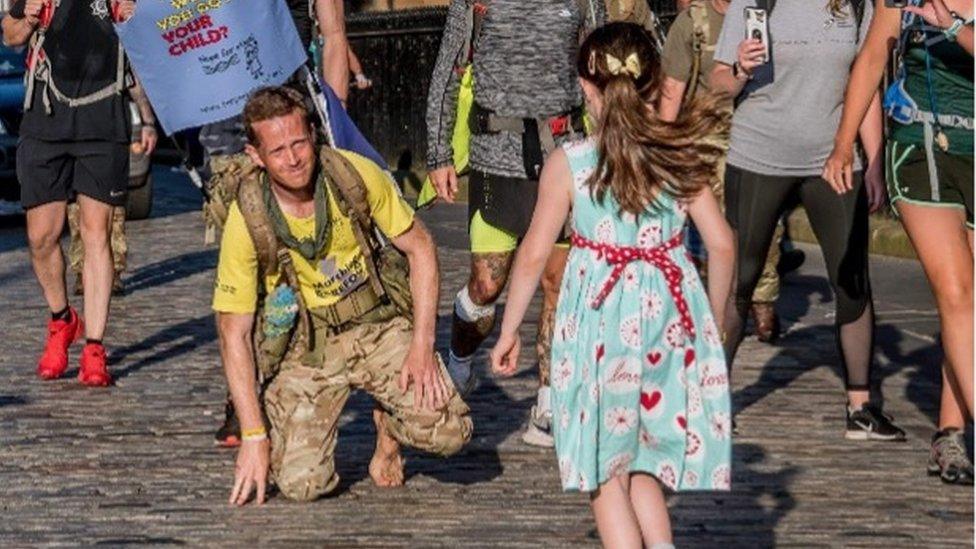
Hasti greeted her father after his 700-mile barefoot challenge in 2020
Major Brannigan said that the last year had made him realise how "supportive and generous people can be" but it had also been the "hardest year" for his family.
"We're constantly worrying and stressed, wondering if we'll raise the money we need to get Hasti the treatment she needs."
Both Major Brannigan and his wife Hengameh were told that due to her condition, Hasti's health could go into decline by the time she reaches puberty.
"When I look at Hasti I see this amazing little girl. I sometimes don't see her challenges but I know she will get worse from puberty.
"She's 10 in December and we're just in this gut-wrenching race against time," said Maj Brannigan.

Follow BBC West on Facebook, external, Twitter, external and Instagram, external. Send your story ideas to: bristol@bbc.co.uk , external
Related topics
- Published18 April 2021
